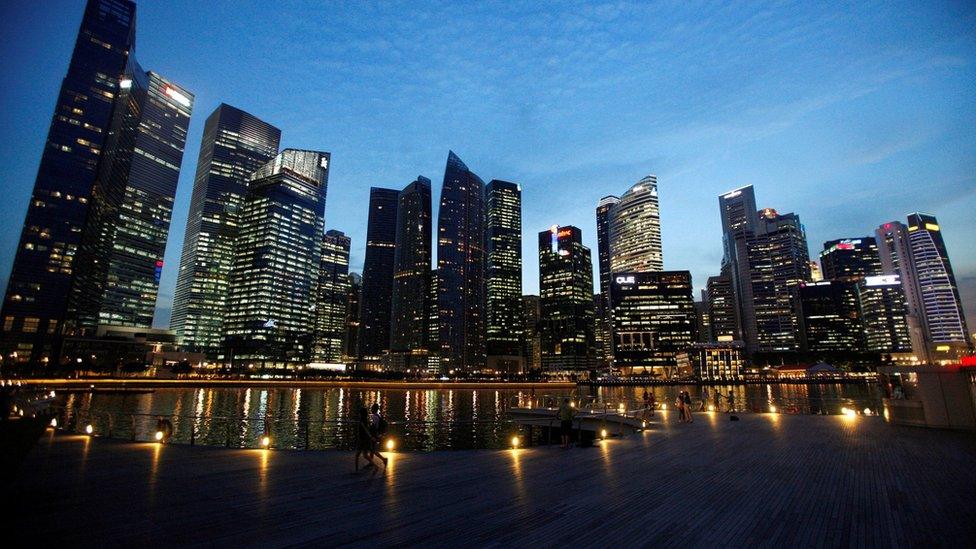Singapore detains 'Syria-bound radicalised woman'
- Published

The government said it was the first time a woman had been "detained in Singapore for radicalism".
Singapore says it has detained a woman intending to travel to Syria to marry a fighter from the so-called Islamic State (IS) militant group.
Child care worker Syaikhah Izzah Zahrah Al Ansari, 22, was held under the Internal Security Act (ISA), which allows for detention without trial.
She had been radicalised since 2013 "by online propaganda", a statement said.
She had a "wide network" of contacts, including IS militants, some who had been killed or arrested for terrorism.
"Izzah was intent on joining ISIS (IS) and was actively planning to make her way to Syria, with her young child, to do so," a said.
"She supported ISIS's use of violence to establish and defend its self-declared 'caliphate', and aspired to live in it."
The young woman had been looking for an IS supporter to marry, the ministry said. "She said she would support her husband if he fought for ISIS in Syria as she believed she would reap 'heavenly rewards' if he died in battle."
She had been "actively" posting and sharing pro-IS material online, it said.
Her family, including her parents who were both teachers of the Koran, had been aware that she had become radicalised and planned to travel to Syria.
"They did not alert the authorities. They tried on their own to dissuade her but they were unsuccessful," the statement said.
'False narratives'
The ministry said it was the first time a woman had been "detained in Singapore for radicalism". Under the controversial ISA, she can be held for up to two years without trial.
Singapore is increasingly concerned about the spread of Islamist militancy in neighbouring countries. Philippine troops are currently fighting militants occupying a city on the southern island of Mindanao who have pledged allegiance to IS.
, the ministry said two Singaporeans were believed to have gone to fight in Syria with their families.
Fourteen more radicalised people had been detained under the ISA since 2015. The ministry said this was a significant rise, compared to 11 cases between 2007-2014.
The majority of Singapore's population are ethnic Chinese but there are large ethnic Malay and Indian communities.
The city-state also has a large migrant worker community. In the same report, it said that 40 Bangladeshi migrant workers and eight Indonesians had also been assessed as radicalised since late 2015. All had been sent home except six who were serving sentences for terrorism financing offences.
, the Islamic Religious Council of Singapore said it would "continue to work hard to inoculate the community against exclusivism and extremism".
It said the young woman's case showed that the "danger of self-radicalisation is very real", through falling "prey to false narratives and teachings on the internet and social media".
- Published3 May 2016
- Published27 May 2015